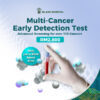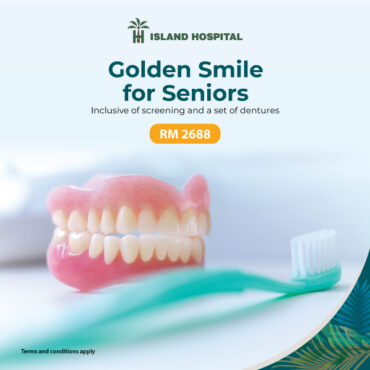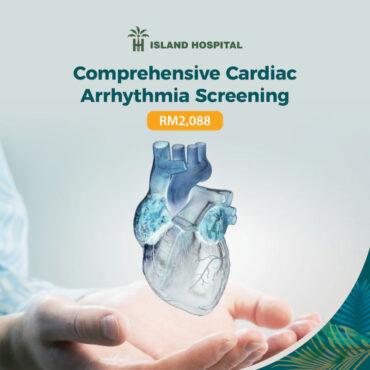Definition of Tests- Why is it done?
Full Blood Investigation
A full blood investigation is a very common clinical procedure and often the “starting point” for most medical investigations. It does not only test for disorders and abnormalities of the blood but, because blood travels throughout the whole body, it can give an indication of disease present in most organs.
Blood tests are beneficial in eliminating the risk of various diseases linked to the blood and conditions incorporated into the bloodstream. Blood tests also help to evaluate the way different body organs are function as it can give an indication of diseases present in the organs.
Kidney Function Many know nothing about kidney diseases—until it is too late.
Healthy kidneys remove wastes and excess fluid from the blood. These tests will show how well the kidneys are doing their job and how quickly body wastes are being removed. At the same time, evaluation of the kidney’s function is done, which aids in the diagnosis of various kidney diseases. Kidney diseases are usually progressive, which means that the damage in the kidneys tends to be permanent and cannot be undone. Therefore it is important to identify kidney diseases early before any damage is done. The good news is that kidney diseases can be treated very effectively if it is detected in the early stages. This is very important, since kidney diseases also puts you at a higher risk for heart disease and stroke. Early kidney disease usually doesn’t have any symptoms, therefore testing is the only way to know how well your kidneys are working.
Creatinine is a waste product from muscle metabolism in your body. Your kidneys filter and this remove creatinine via your urine. Should your kidneys become impaired for any reason, the creatinine level in the blood will rise because your kidneys are unable to get rid of this waste.
Urea is a waste product formed from the breakdown of proteins. Urea is usually passed out in the urine. A high blood level of urea indicates that the kidneys may not be working properly.
Dissolved salts that are routinely measured are Sodium, Potassium and Chloride. They are sometimes referred to as ‘electrolytes’.
Liver – Your body’s largest, most important internal organsIf you are a healthy person, you might not think twice about your liver — and for a good reason. The only time this organ seems to attract any attention is when it stops working. As one of the hardest working organs in your body, the liver performs hundreds of functions, including processing foods and drinks for later use or elimination. Problems with the liver can make a person very sick and can even be life-threatening.
Your liver does all kinds of work that is critical to your health. It helps break down food, clean your blood, make proteins, and store energy
The liver performs a number of vital bodily functions, such as:
- removing contaminants from your blood
- converting nutrients from the foods you eat
- storing minerals and vitamins
- regulating blood clotting
- producing proteins, enzymes, and bile
- making factors that fight infection
- removing bacteria from your blood
- processing substances that could harm your body
- maintaining hormone balances
Your liver makes most of the proteins that are found in your blood : Albumin and Globulin. Albumin is one major type of protein. Albumin carries many other substances around your system, including medicines and products your body makes. Another kind of protein called Globulin help fight infection and transport nutrients in your body. Low levels can mean liver damage or disease.
A/G Ratio provides information about the amount of albumin you have compared with globulin. This test is useful to check for liver diseases.
Gamma Glutamyltransferase (GGT)This test is used to measure the amount of the enzyme of GGT in your blood. A high level of GGT measurements have proved to be effective early warning signs of a damaged liver, as well as other health risks such as atherosclerosis, stroke, type 2 diabetes, kidney disease and cancer.
Bilirubin is a waste product from the breakdown of red blood cells. Elevated levels may indicate liver damage or disease.
The SGPT and SGOT tests evaluate how much of these liver enzymes have leaked into the blood. When liver cells are damaged, these enzymes leak into the blood stream, raising its level to be higher than normal.
Bone – Why does Bone Health Matter?Bone health is a legitimate concern for both men and women. Our bones support us and allow us to move. They protect our brain, heart, and other organs from injury.
Rheumatoid Factors (RA) are protein produced by your immune system that can attack good tissues in your body. High level of Rheumatoid Factor in the blood are usually associated with auto immune diseases such as rheumatoid arthritis. Rheumatoid Factors is an autoimmune disease that primarily affects joints and can cause pain and swelling in the wrist and small joints of the hand and feet. Rheumatoid Factors is diagnosed by examining blood tests for antibodies in the blood and to look for high levels of inflammation.
Our bones also store minerals such as Calcium and Phosphorous, which help keep our bones strong, and are released into the body when we need them for other uses.
Cholesterol is a type of fat that is carried around the body in the blood. High levels of cholesterol can build up in the arteries and increase your risk of heart attack or stroke. Lipid Profile is a complete cholesterol test to measure the amount of “good” (High-Density Lipoprotein HDL) and “bad” (Low-Density Lipoprotein – LDL) cholesterol and Triglycerides, a type of fat, in your blood. A healthy Total Cholesterol and HDL Ratio is to get an idea of whether your cholesterol levels are healthy thus reducing your risk of heart problems.
Thyroid Screening – Why is a Thyroid test important?The thyroid is made up of glands that secrete hormones through the body’s bloodstream to every cell and organ in the body to keep the body in harmony. A Thyroid Stimulating Hormone (TSH) test is done to find out if your thyroid gland is working the way it should, whilst the Free T4 (Thyroxine) tests are used to help evaluate thyroid function and diagnose thyroid diseases.
Hepatitis B & C
Tests for liver health and for presence of past or current hepatitis.
Hepatitis B Surface Antigen (HBsAg) is to test if you if have the infection.
Hepatitis B Surface Antibody (HBsAb) is to test if you have cleared the virus after infection, or if you have been vaccinated and you are now immune to future infections.
Hepatitis C Antibody is to detect antibodies to the hepatitis C virus.
Fasting Glucose Level
Fasting blood sugar provides important information about how your body is managing blood sugar levels. High fasting blood glucose levels may indicate insulin resistance or diabetes.
Syphillis tests are used to screen for and/or diagnose the common sexually transmitted bacterial infection.
Urine FEME A full and microscopic examination of the urine to look out for all components of whether you have a localised infection (urinary tract infection) or systemic infection (beyond the urinary tract) or the presence of chemical substances in the body
Uric Acid is to determine how much uric acid is in your blood. Most of the time, a high uric acidlevel occurs when your kidneys do not eliminate uric acid efficiently and it could be a sign of the condition gout, which is a painful form of arthritis.
H.Pylori bacteria is a common cause of persistent stomach inflammation and stomach ulcers. It is associated with an increased risk of developing chronic gastritis, and gastric(stomach) cancer. This test is needed to rule out other digestive conditions. You can have the infection without symptoms.
Cancer Marker Test – Why Early Detection?Screening increases the chances of detecting potential problems before a person has symptoms, when they are most likely to be curable. Cancer screening tests are tests that look for the presence of cancer in healthy people or people without symptoms of cancer.
• Male Cancer Profile screens the : colon, liver, lung, pancreas, testis and prostate (for male)
• Female Cancer Profile screens the : colon, liver, lung, pancreas, breast and ovaries (for female)
Diabetes Screening – HbA1cBy measuring HbA1c, you are able to get an overall picture of the average blood sugar levels have been over the past 2 to 3 months.
Imaging Investigation reveals internal structures hidden by the skin and bones. It makes it easier to diagnose and treat diseases as well as to identify abnormalities.
Chest X-rays examines the anterior of the lungs to detect any lesion, inflammation or abnormal tumors, and checks for possible pulmonary tuberculosis, pneumonia and other lung diseases.
Ultrasound Examination of Upper Abdomen looks at organs in the abdomen, including the liver, gallbladder, spleen, pancreas, and kidneys.
Ultrasound Examination of Pelvis A pelvic ultrasound looks at the bladder, ovaries, uterus, cervix, and fallopian tubes of a woman (female organs) and the prostate gland and seminal vesicles of a man (male organs).
Electrocardiogram of the Heart is a diagnostic tool that measures and records the activity of the heart. ECGs are quick, safe, and painless. With this test, your doctor will be able to:
- Check your heart rhythm
- Determine the blood flow to your heart muscle
- Check on any abnormalities of the heart
Eye TestHaving a simple eye test on a regular basis really does make all the difference. Regular eye tests are important because your eyes don’t usually hurt when something is wrong.
A visual acuity test is an eye exam that checks how well you see the details of a letter or symbol from a specific distance and the ability to recognise the shapes and details of the things you see.
A colour blindness is to determine if you have a colour vision deficiency, the decreased ability to see colour or differences in colour.
Hearing Assessment
Hearing assessment are to make sure that your ears work well.
Pure tone audiometry or pure-tone audiometry is the main hearing test used to identify hearing threshold levels of an individual, enabling determination of the degree, type and configuration of a hearing loss and thus providing a basis for diagnosis and management.
Tympanometry is an examination used to test the condition of the middle ear and mobility of the eardrum (tympanic membrane) and the conduction bones by creating variations of air pressure in the ear canal.
Fat Analysis_What’s a good amount of body fat to aim for?
Maintaining a healthy weight is important for your health in addition to lowering the risk of serious health implications. Your weight and your waist size can have a major influence on your health throughout your life.
Body Fat Analysis
Body fat can be found in muscle tissues, under the skin, or around organs. This is a measurement of how much of the weight of your body is fat. Some fat is necessary for overall health but having excess storage of fat and non-essential body fat is a significant risk factor for many health conditions.
Body Mass Index (BMI) gives information about ideal body weight. It is a calculation that determines height to weight ratio.
Results & Medical Report
- Our health screening consultant physician will review the results of the tests for any evidence of diseases or other abnormalities.
- If an abnormality is found, our health screening physicians will make a definitive diagnosis and refer you to our specialists for onward treatment.









